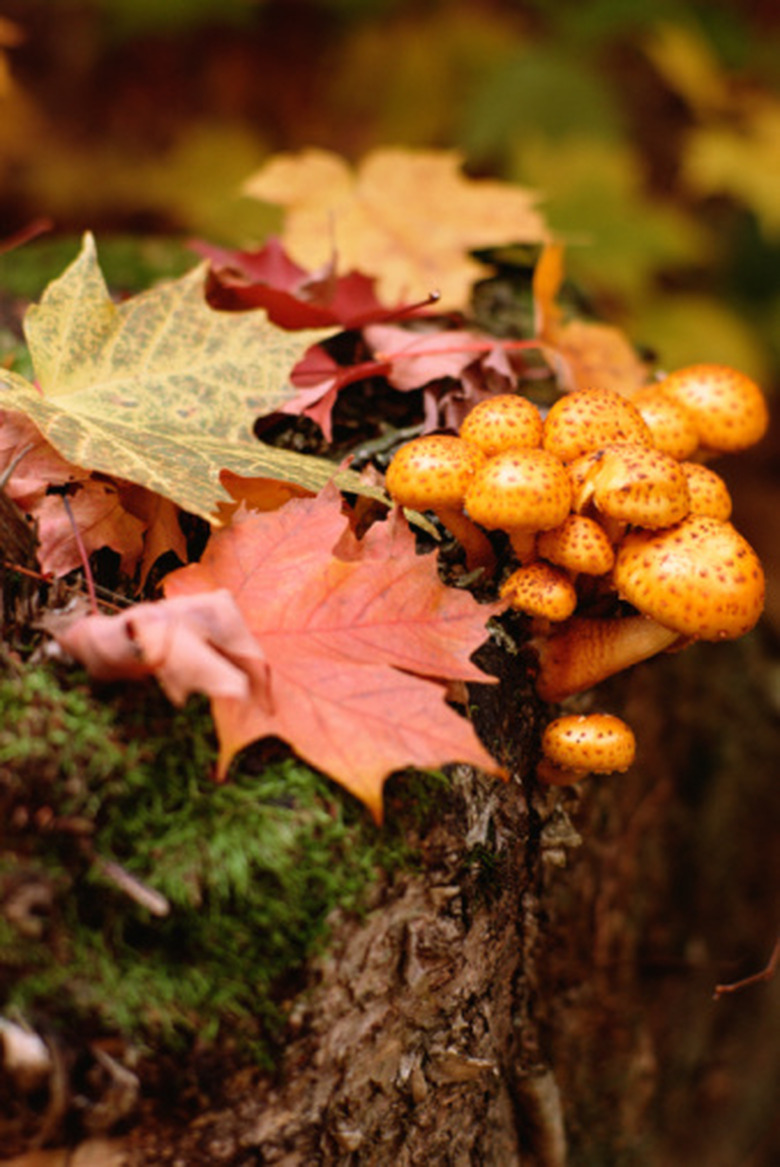What Does Decomposed Organic Matter Do To Soil?
Organic matter — decomposed leaves, twigs, feathers and manure — is one of the primary components of soil. Although people often think of soil as a strictly mineral compound, soil is actually a complex mixture of minerals, organic matter, liquids and gases. These components become part of the soil through natural processes such as the decomposition of organic material.
Introduces Nutrients
Introduces Nutrients
Organic material is full of vital minerals and nonmineral nutrients such as nitrogen, phosphorous, potassium and carbon. Nitrogen and phosphorous are essential to photosynthesis. Potassium increases the ability of plants and fungi to use water and resist drought. And carbon in soil is an important part of the carbon cycle, which returns carbon to the atmosphere where it is used during photosynthesis.
Transfers Microorganisms
Transfers Microorganisms
Fungi and bacteria live on and are drawn to organic material. These tiny life forms are responsible for the physical and chemical reactions that break matter into its base components. They also boost the decomposition of active soil, the portion of soil that is still in the process of decomposing. By assisting in decomposition, microorganisms create stabilized organic matter, organic material that cannot be degraded further. Stabilized organic matter binds soil, prevents erosion and improves retention of liquids.
Alters Soil Structure
Alters Soil Structure
Adding manure softens the texture of soil. This helps seedlings burst through the surface and emerge to access sunlight. It also improves root penetration, allowing the root system of plants to expand and access nutrients and water. Increasing the amount of organic material also increases the amount of stabilized organic matter in the future. For regions with sandy soil, which cannot retain water or hold nutrients, stabilized organic matter is essential to creating a life-sustaining environment.
Traps Foreign Compounds
Traps Foreign Compounds
Pesticides, fungicides and herbicides release minerals and chemicals into the soil that can be harmful to plants. Stabilized organic matter helps trap these chemicals in sturdy compounds such as clay and humic colloids. Fresh organic material that is still decomposing breaks down these trapped compounds over time; however, this trait can also prevent chemicals from killing weeds or reaching and purging infections.
References
- North Carolina Department of Agriculture & Consumer Services: Plant Nutrients
- University of Florida Institute of Food and Agricultural Sciences Extension; Soil Organic Matter, Green Manures and Cover Crops ...; W. T. Crow and R. A. Dunn; 2009
- Food and Agriculture Organization of the United Nations: Organic Matter Decomposition and the Soil Food Web
- The Samuel Roberts Noble Foundation; What Does Organic Matter Do in Soil?; Eddie Funderburg; August 2001
